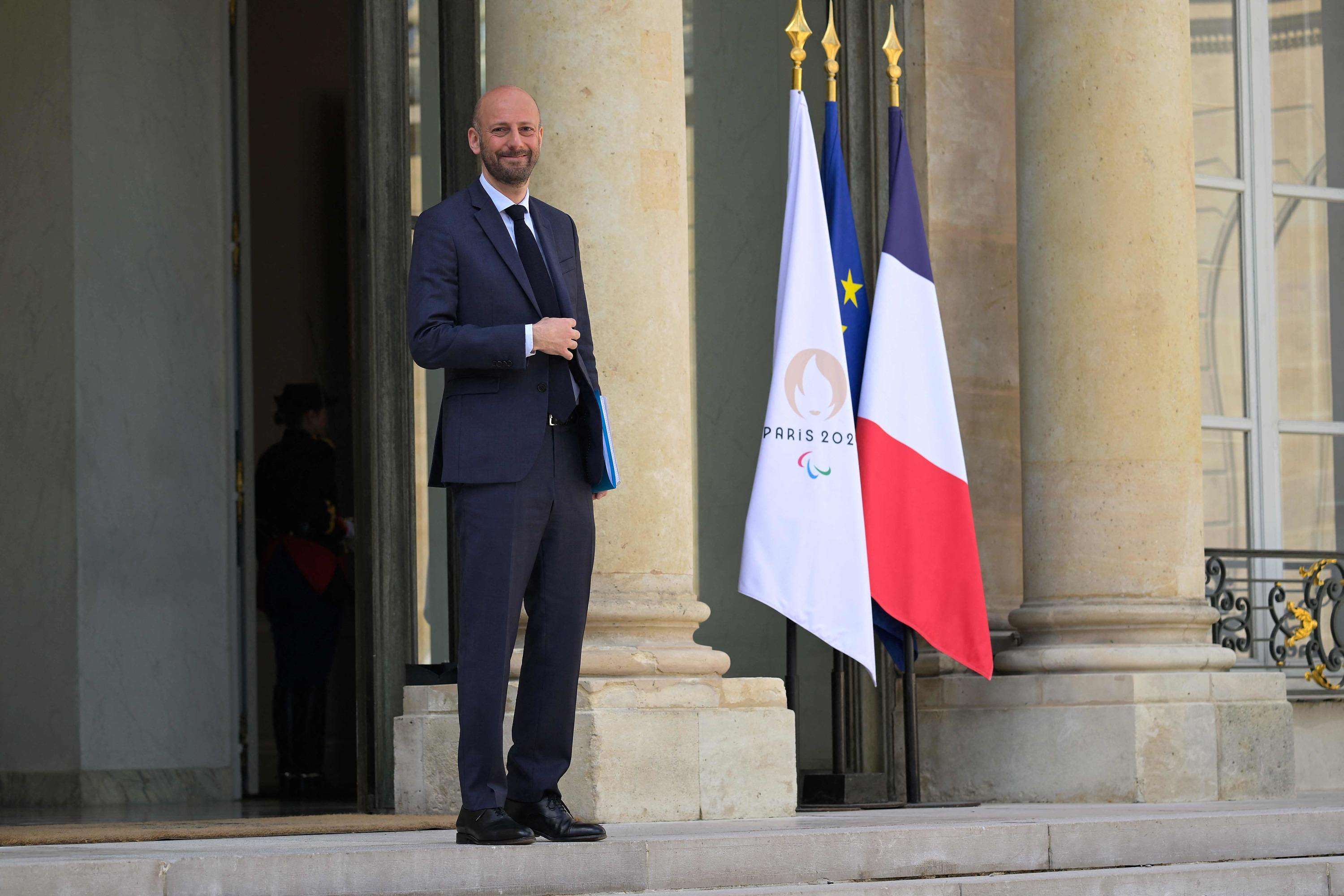On the immigration law, The Republicans (LR) have not said their last word. Three months after the adoption of the bill by Parliament and forty days after its partial censorship by the Constitutional Council, the right continues the political fight. According to information from the Playbook Paris newsletter, confirmed by Le Figaro, The Republicans have gathered at least 185 signatures from parliamentarians to initiate a shared initiative referendum procedure (RIP).
In mid-February, Éric Ciotti, Bruno Retailleau and Olivier Marleix presented their troops with a 13-page document entitled “Proposed law reforming access to social benefits for foreigners”. Furious at the censorship of a third of the immigration bill which they had largely contributed to "hardening", the penned leaders of the right had expressed their desire to submit several rejected measures to a referendum.
The text includes five articles relating to the conditionality of non-contributory social benefits, the transformation of State medical aid (AME) into emergency medical aid (AMU), price reductions on transport tickets, the inclusion in the count of social housing in a municipality of temporary accommodation centers and those of asylum seekers and the impossibility of maintaining for a person rejected the right to asylum in accommodation granted under the national reception system . In addition to the signatures of LR elected officials, two votes from non-registered deputies and one from the Liot group swelled the ranks of signatories, according to a right-wing party executive.
Collecting signatures is only the first step in a long and difficult road to hope for a law. From now on, the Constitutional Council must validate the bill and the shared initiative referendum process. The LRs provide for a “transmission ceremony” of the proposed law to the Constitutional Council “at the end of the week or at the beginning of next week”, according to the same framework.
The Sages of the Rue de Montpensier will then have one month to rule on the validity of the proposal, in particular if it respects the conditions set by article 11 of the Constitution, which limits the scope of the referendum to economic and social questions. “It is difficult to maintain that immigration issues do not affect the organization of public authorities or economic and social policy. And the Constitutional Council admitted that an incidental question, for example fiscal, could give rise to an RIP if the main object falls within the scope of article 11,” comments Jean-Pierre Camby, associate professor at the University of Versailles Saint-Quentin.
An interpretation of article 11 at the origin of a doctrinal divergence between constitutionalists. For Anne-Charlène Bezzina, lecturer in public law, “there is a question of interpretation which will arise to know whether this proposal is a reform which concerns a purely economic or social question. In my opinion, there is no doubt that it is not the economy or the social but immigration which is the main object. It is indeed this main object of the law that the Constitutional Council verifies as part of the list of objects authorized by article 11 of the Constitution. For her, the Constitutional Council could therefore censor, this time, a priori the measures.
In the event that the institution chaired by Laurent Fabius validates the proposal, the hardest part would begin for Eric Ciotti's party. The LR would have nine months to collect the signatures of a tenth of the electorate, or nearly 5 million French people. While such a tour de force has never taken place since the creation of the RIP in 2008, the LR would not even be guaranteed to see their text submitted to the vote of the French. The Assembly and the Senate would then have six months to examine the text. Otherwise, if Parliament does not decide within six months, then the president would be obliged to submit the text to a referendum.

 B:SM will break its investment record this year with 62 million euros
B:SM will break its investment record this year with 62 million euros War in Ukraine: when kyiv attacks Russia with inflatable balloons loaded with explosives
War in Ukraine: when kyiv attacks Russia with inflatable balloons loaded with explosives United States: divided on the question of presidential immunity, the Supreme Court offers respite to Trump
United States: divided on the question of presidential immunity, the Supreme Court offers respite to Trump Maurizio Molinari: “the Scurati affair, a European injury”
Maurizio Molinari: “the Scurati affair, a European injury” Irritable bowel syndrome: the effectiveness of low-carbohydrate diets is confirmed
Irritable bowel syndrome: the effectiveness of low-carbohydrate diets is confirmed Beware of the three main sources of poisoning in children
Beware of the three main sources of poisoning in children First three cases of “native” cholera confirmed in Mayotte
First three cases of “native” cholera confirmed in Mayotte Meningitis: compulsory vaccination for babies will be extended in 2025
Meningitis: compulsory vaccination for babies will be extended in 2025 In the United States, a Boeing 767 loses its emergency slide shortly after takeoff
In the United States, a Boeing 767 loses its emergency slide shortly after takeoff The A13 motorway will not reopen on May 1
The A13 motorway will not reopen on May 1 More than 1,500 items for less than 1 euro: the Dutch discounter Action opens a third store in Paris
More than 1,500 items for less than 1 euro: the Dutch discounter Action opens a third store in Paris 100 million euros in loans, water storage, Ecophyto plan… New measures from the executive towards farmers
100 million euros in loans, water storage, Ecophyto plan… New measures from the executive towards farmers Books poisoned with arsenic present in French libraries
Books poisoned with arsenic present in French libraries New York justice returns 30 works of art looted from Cambodia and Indonesia
New York justice returns 30 works of art looted from Cambodia and Indonesia Les Galons de la BD dedicates War Photographers, a virtuoso album on the Spanish War
Les Galons de la BD dedicates War Photographers, a virtuoso album on the Spanish War Theater: Kevin, or the example of an academic failure
Theater: Kevin, or the example of an academic failure Skoda Kodiaq 2024: a 'beast' plug-in hybrid SUV
Skoda Kodiaq 2024: a 'beast' plug-in hybrid SUV Tesla launches a new Model Y with 600 km of autonomy at a "more accessible price"
Tesla launches a new Model Y with 600 km of autonomy at a "more accessible price" The 10 best-selling cars in March 2024 in Spain: sales fall due to Easter
The 10 best-selling cars in March 2024 in Spain: sales fall due to Easter A private jet company buys more than 100 flying cars
A private jet company buys more than 100 flying cars This is how housing prices have changed in Spain in the last decade
This is how housing prices have changed in Spain in the last decade The home mortgage firm drops 10% in January and interest soars to 3.46%
The home mortgage firm drops 10% in January and interest soars to 3.46% The jewel of the Rocío de Nagüeles urbanization: a dream villa in Marbella
The jewel of the Rocío de Nagüeles urbanization: a dream villa in Marbella Rental prices grow by 7.3% in February: where does it go up and where does it go down?
Rental prices grow by 7.3% in February: where does it go up and where does it go down? Even on a mission for NATO, the Charles-de-Gaulle remains under French control, Lecornu responds to Mélenchon
Even on a mission for NATO, the Charles-de-Gaulle remains under French control, Lecornu responds to Mélenchon “Deadly Europe”, “economic decline”, immigration… What to remember from Emmanuel Macron’s speech at the Sorbonne
“Deadly Europe”, “economic decline”, immigration… What to remember from Emmanuel Macron’s speech at the Sorbonne Sale of Biogaran: The Republicans write to Emmanuel Macron
Sale of Biogaran: The Republicans write to Emmanuel Macron Europeans: “All those who claim that we don’t need Europe are liars”, criticizes Bayrou
Europeans: “All those who claim that we don’t need Europe are liars”, criticizes Bayrou These French cities that will boycott the World Cup in Qatar
These French cities that will boycott the World Cup in Qatar PSG: “Immense pride in continuing the adventure in Paris”, relishes Zaire-Emery
PSG: “Immense pride in continuing the adventure in Paris”, relishes Zaire-Emery Breaking: everything you need to know about this sport
Breaking: everything you need to know about this sport NBA: Lakers gain respite, Boston responds to Miami
NBA: Lakers gain respite, Boston responds to Miami Top 14: “a very severe red card”, estimates Labit (French Stadium)
Top 14: “a very severe red card”, estimates Labit (French Stadium)

















